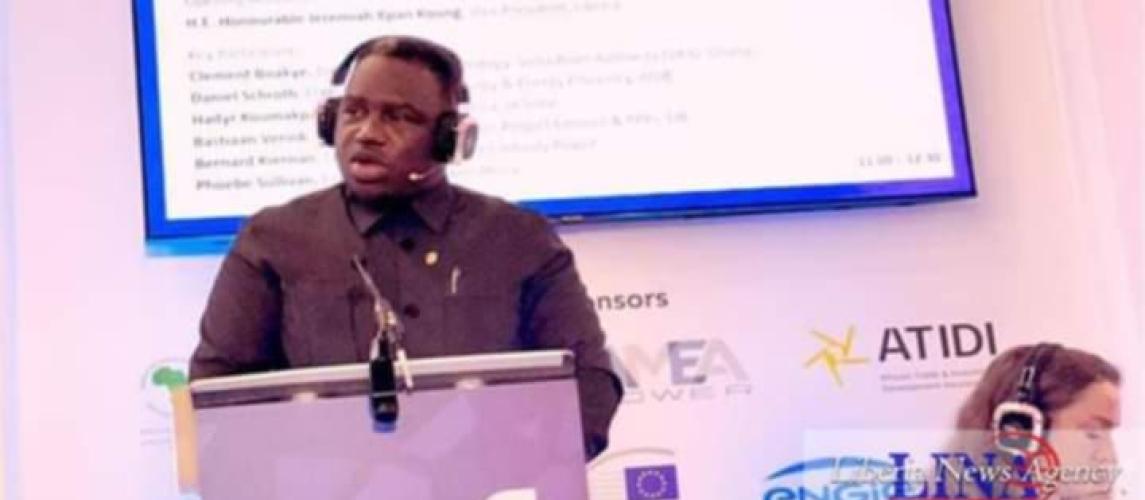
VP Koung Underscores Liberia's Capacity To Dev. Renewable Energy
VP Koung Underscores Liberia's Capacity To Dev. Renewable Energy
By K. Ericson Sayee
MONROVIA, June 29 (LINA) – The Vice President of the Republic of Liberia, Jeremiah K. Koung has highlighted Liberia’s great potential in the development of renewable energy due to the county’s favorable and unique climatic conditions.
According to him, the level of radiation is specifically higher from November to March, which provides a favorable environment for solar energy projects, adding that the country is seeking private investors that can provide 60 megawatts of solar power.
VP Koung made these assertions in Barcelona, Spain, when he addressed the Africa Energy Forum.
He cited that if implemented, the solar power will avert power blackouts during Liberia's dry season when the river level is low to run the turbines.
"Our Nation also experiences a humid and tropical climate with a monthly average solar radiation between 4.0 and 6.0 Kilowatt-hour per day,” he stated.
The Liberian VP said that while Liberians are working together to design and build the major hydropower project that could take 3 to 5 years for commissioning, the country is pursuing a 25 megawatts solar farm near the site of the country’s hydropower station, and additional 16 megawatts SCATEC solar project.
He disclosed that the country has also carved a roadmap to a low carbon economy and targets net zero carbon emissions by 2050, adding that “hydropower development is a major component of our strategy, and the full development of our nearly 150 Megawatts at St. Paul River basin is essential for our energy security and net zero emission strategy.”
"We are ready for the journey to a net-zero carbon economy. We have liberalized our power sector and established an independent electricity regulatory body, paving the way,” he said.
Renewable energy, according to the Vice President, is key to combating climate change and accelerating energy access to rural population, saying the United Nations has indicated that at least $4 trillion a year needs to be invested in renewable energy until 2030 – including investments in technology and infrastructure – to allow Liberia reach net-zero emissions by 2050.
He then urged countries that have contributed the most to pollution to be morally obligated to contribute substantially to the cleanup and mitigation efforts, adding, "We must talk less and act more on climate action to save our planet!"
VP Koung further disclosed that it is estimated that a third of global greenhouse gas emissions come from agriculture worldwide and to ensure agriculture sustainability and food security for a growing world population, renewable energy is critical for food harvesting, processing and preservation while at the same time reducing CO2 emission.
At the same time, VP Koung, has called for a renewed mindset to discuss strategies for expanding public and private cooperation, urging his colleagues to shift the focus to the prioritization of renewable energy development and procuring capital from the private sector.
He noted that the forum is crucial to understand Africa’s context as an energy-paradox, citing that Africa is a continent rich in energy resources but, unfortunately, the most energy-deficient continent in the world.
The Liberian VP recommended that the expansion of renewable energy must continue to be an integrated part of climate solution and a key component of all Nationally Determined Contributions.
